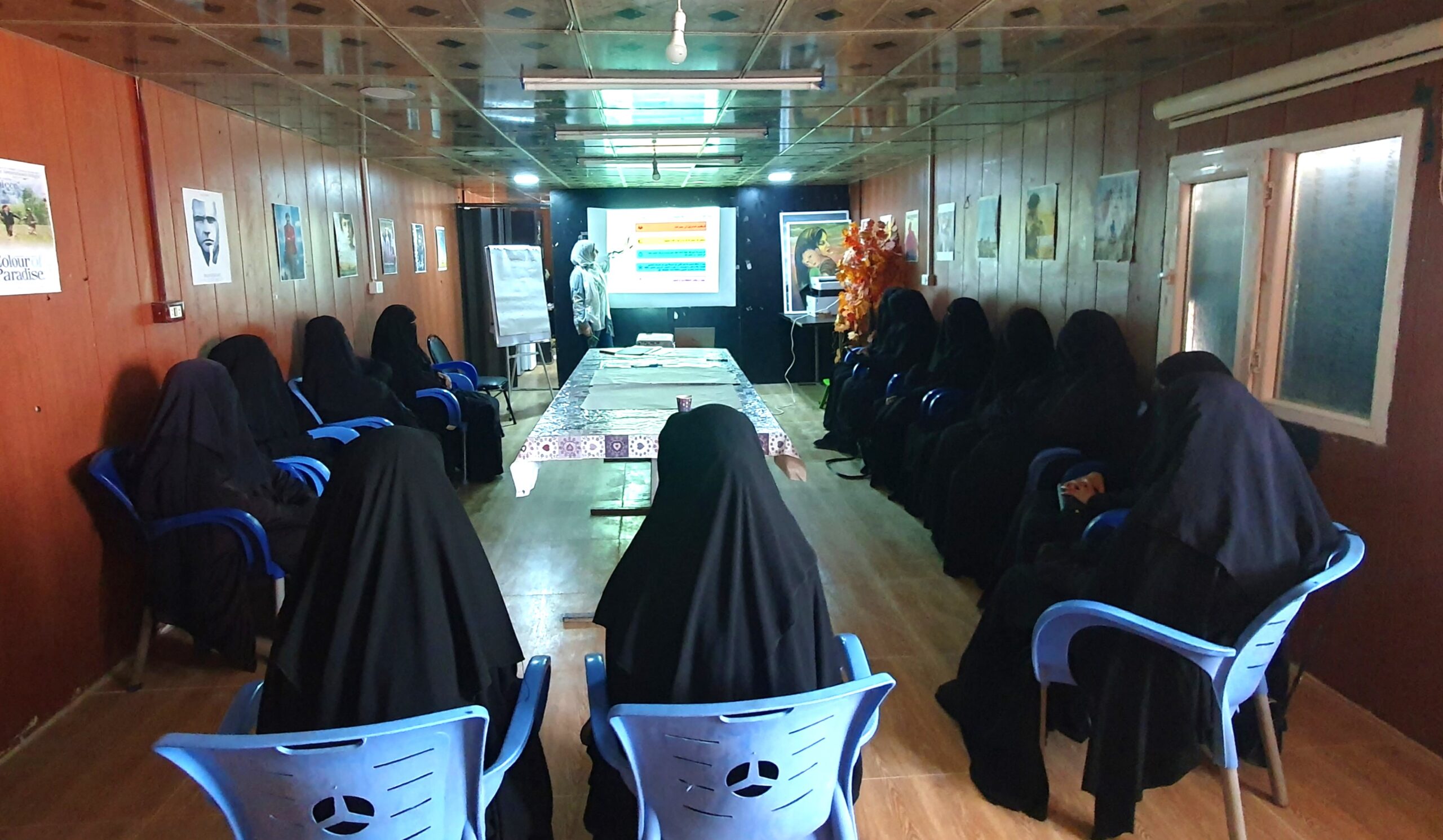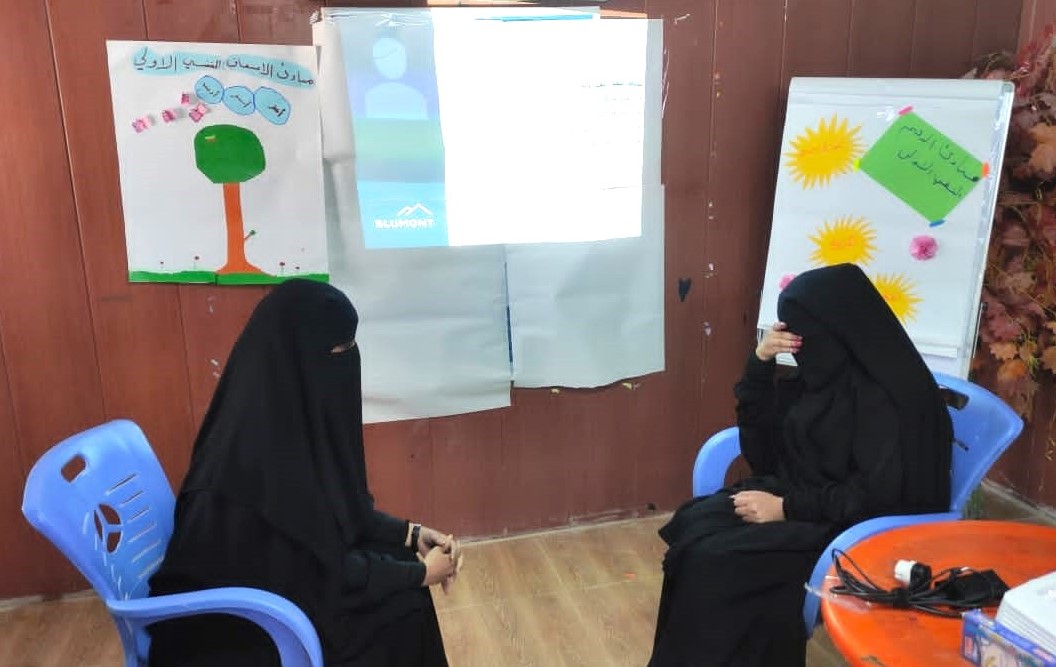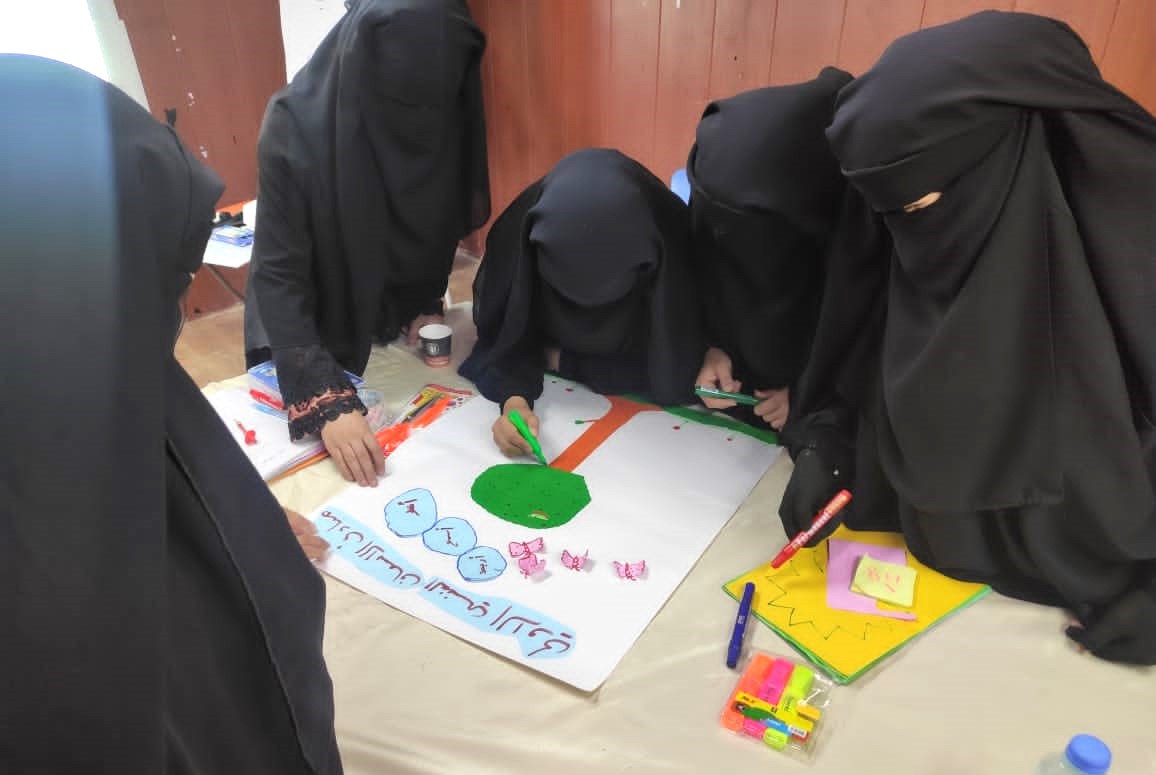The aftermath of violence, conflict, and mass displacement in Syria has left millions reeling with psychological impacts. In the face of many kinds of stressors, people dealing with loss and isolation may struggle to find someone to turn to. It is crucial that they have access to a strong support system.
In several displacement camps in northeast Syria, affected communities can turn to staff, community leaders, and neighbors who are trained in psychological first aid (PFA).
Under several camp management programs in the region (including the Camp Coordination and Camp Management (CCCM) program funded by the U.S. Department of State Bureau of Population, Refugees, and Migration), our team leads PFA trainings. This type of first aid is designed to help children, adolescents, and adults cope with immediate trauma after crises such as disaster, terrorism, and violent conflict.[1]
PFA does not need to be performed by a mental health professional to be effective; camp managers and community members can apply its principles to support others. Our protection team in northeast Syria carried out 17 days of PFA training for community leaders and Blumont staff, with each participant attending one to three training days, respectively.

The Blumont team in northeast Syria trained over 500 people who live and work in displacement camps in psychological first aid.
Over years of working with camp communities, our camp management staff have built a sense of trust and understanding with residents and are often the first point of contact residents reach out to for help. These trusted individuals must have the skills needed to respond to the complex psychological challenges that community members are facing.
“The community trusts our staff,” says Harriet Oyombe, Blumont’s gender and protection specialist in northeast Syria. “As first responders and as camp managers, we thought that giving them skills in psychological first aid would help them better support camp residents facing distress and trauma.”
Block and sector leaders, who are resident volunteers that represent their communities, take on many responsibilities in the camps, like voicing needs, sharing information, and providing PFA. As trusted members of their communities, they can quickly respond to neighbors’ distress. This is especially important in situations when our staff is not immediately available, such as in the late hours of the night.
There are three core strategies within PFA to foster short and long-term adaptation among communities facing distress: look, listen, and link. [2] Trainings for staff and residents focused on these principles: assessing and gathering all necessary information about the situation at hand (“look”); actively listening and understanding the other person’s concerns (“listen”); and connecting those in need to social services or other sources of assistance for longer term support (“link”). [3]

The psychological first aid training for community leaders included roleplaying sessions to prepare trainees for real-life situations.
Through role-playing exercises and case studies, over 500 participants gained a better understanding of common stressors, how different people react to stressors, and how to manage these reactions. The trainings also focused on building participants’ communication skills. Words are incredibly impactful, and it is sometimes difficult to know what to say and when to say it. By building communication skills, staff and camp leaders learned how to avoid accidentally inflicting further harm with their words.
Maria, an active member of her camp community, found that the PFA training helped her better support a friend dealing with the loss of her father. The emotional toll of losing a parent severely impacted this friend’s daily life and relationship with her family. Since receiving PFA from Maria, the woman has been able to rebuild a relationship with her family and heal emotionally.
“It took some time, but I helped my friend improve her condition and return to her family who needed her support. All of this was due to the principles of psychological first aid that I received from Blumont’s training,” Maria said. “This important initiative restores life to many people who have lost hope.”
In the two additional days of training for Blumont staff, we conducted a training of trainers so that we can expand the reach of PFA beyond our team and the group of community leaders. This also included extensive coaching in self-care. As our team members work in difficult environments, they need to feel well before helping others.

PFA does not need to be performed by a mental health professional to be effective; community members can apply its principles to support others.
PFA is an important piece of our protection framework for camp communities. New families arrive at the camps and community members deal with both lasting trauma and new challenges. Equipped with PFA skills, staff and community leaders can take care of immediate needs and connect people to longer-term support. “Immediately, we are saving lives. After, we are helping people manage shock,” said our protection manager, Hayastan Issa.
“Having community members trained in PFA significantly reduces the risk of immediate problems or accidents turning into long-term challenges,” said Wisal, a woman living in a displacement camp in northeast Syria. “It also creates a sense of comfort and safety for people.”
[1] https://www.nctsn.org/treatments-and-practices/psychological-first-aid-and-skills-for-psychological-recovery/about-pfa
[2] https://pscentre.org/wp-content/uploads/2019/07/PFA-Intro-low.pdf
[3] https://www.unicef.org/armenia/en/stories/how-provide-psychological-first-aid



